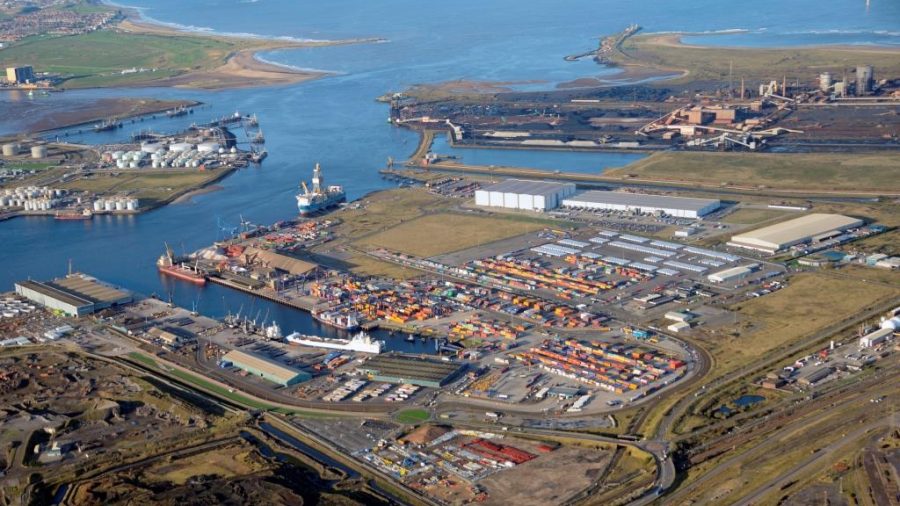
PD Ports has launched a second rail service connecting Teesport direct with Scotland opening up further opportunities to connect global importers and exporters with the north of the UK.
The new service, operated by DB Cargo, will run five days a week from the quayside at Teesport to PD Stirling Terminal at Mossend in Glasgow. The timings of the service operate in direct connection with the P&O Ferries service calling daily at Teesport from Zeebrugge and Rotterdam; providing a vital connection for shippers, shipping lines and forwarders looking for frequent, flexible and efficient routes to market.
Having launched the first Scottish rail connection from Teesport in August 2015, the Port now offers more direct daily connections to and from Scotland than any other port in the north of England, running 10 trains a week and carrying over 30 containers per journey each way laden with a variety of goods including food, drinks and furniture.
A substantial proportion of containers travelling on this service will be volume from the daily P&O Ferries service from Zeebrugge. Earlier this year P&O Ferries increased its capacity on this service by 25% in a response to market demand for Teesport as the port of choice to connect shippers with Scotland.
Frans Calje, CEO at PD Ports, said: “Our second rail service to Scotland is a major milestone for Teesport and the wider Tees Valley. It symbolises the tremendous sense of confidence and trust global shippers have in the Port to deliver peace of mind, unlike other congested UK and European hub ports.
“Frequency and reliability is fundamental to the success of our customers’ existence. We have vessels arriving at Teesport from the Baltics every 30 hours and every 48 hours from Poland with direct rail connections from the quayside to Scotland twice a day, five days a week.
“This frequency breeds trust and confidence amongst shippers that they can transport their goods from Europe to Scotland within a 36 hour period, minimising cost and carbon emissions.”
Janette Bell, Chief Executive at P&O Ferries, said: “Our customers will benefit greatly from the increased connectivity which this second rail link to Scotland will give Teesport. In tandem with our highly cost efficient 15 hour sailings to the continent, we can guarantee both exporters and importers an unrivalled service to and from northern Britain.”
Andrew Stirling, Managing Director at PD Stirling, commented: “This is excellent news for Scottish importers and exporters. It not only provides vital daily rail connections to and from the continent through Teesport, it also provides support to Scotland’s manufacturing base. This growth in rail transport with Teesport has led to firm plans to expand our facilities and to launch the MIRP (Mossend International Rail Freight Park).”
Tees Valley Mayor, Ben Houchen, said: “Strong transport links are essential for a strong economy and this new service is fantastic news for PD Ports and the whole of Tees Valley.
“Teesport is one of the deepest water ports on the East Coast of England and its facilities connect our industries to the world. It’s already an attractive prospect and an invaluable resource which has been made even better by this announcement, especially in ensuring we’re an outward-looking, global region able to take advantage of all the opportunities of Brexit.”
David Coppock, North East Region Director Northern Powerhouse, Department for International Trade, said: “This new service is further proof of how significant and important Teesport is to the Tees Valley in expanding its global reach. PD Ports is providing further vital investment in the region by opening up frequent, efficient and flexible transport routes for international trade.”
The second service in to Scotland is a clear demonstration of PD Ports’ continued commitment to developing a truly multimodal logistics platform at Teesport with the ability to support future growth in international trade and the delivery of government plans to rebalance trade through the Northern Powerhouse.
Teesport continues to see considerable growth year-on-year in container handling and saw an overall volume increase higher than any other UK port in 2017.